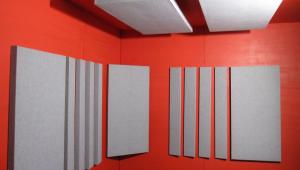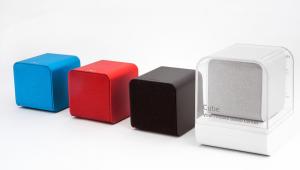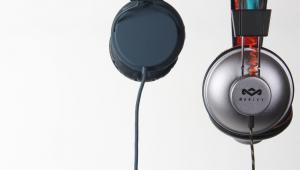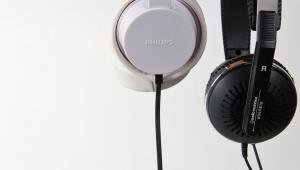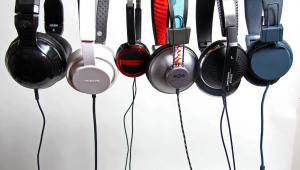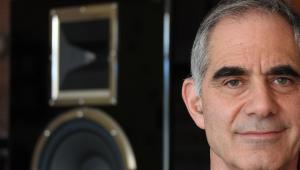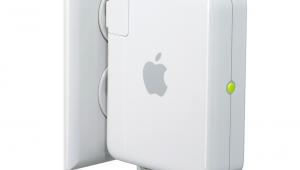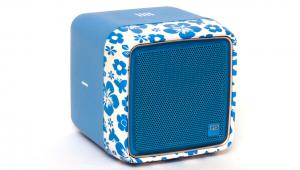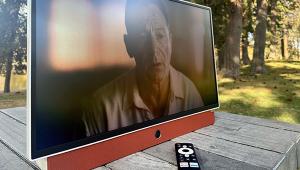I'm confused, Isn't this the same Tidal the received glowing reviews from S&V's editorial staff just 6 months ago?
Whats changed, the price seems even better with a two tier system - the service hasn't lost any major labels and the HD streaming isn't any less lossless. Let me read this blog again and figure out whats changed. Oh, OK now I get it!
Tidal Bellyflops Into a Flooded Music Market
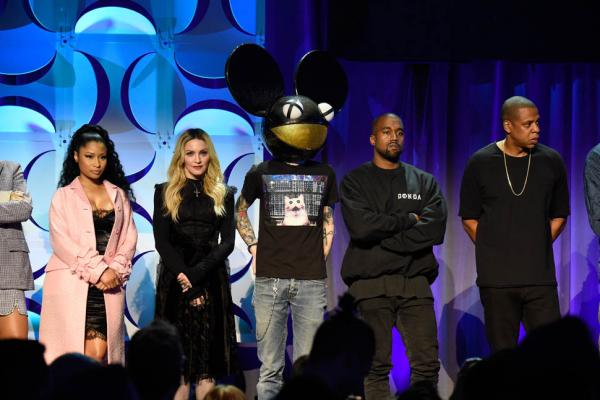
But what about the indie bands, the up and comers who are living and playing out of their vans on the road? Well, they’re pretty much screwed. They don’t get as high a percentage of the streaming money as the “name” acts, they don’t get the support of the label system, and generally are faced with having to give their music away to get exposure in the hopes that someone may buy a ticket to a show. These are the artists who are hurt when we download free music. And these are the artists who should have been up on that TIDAL stage during the press conference. Pomplamoose, Grizzly Bear, and other bands who are working on music full time, getting nominated for music industry awards, have a sizable following, and yet can’t afford to buy a house.
In the end, the reason people pirate as opposed to purchase any media is because they see it as a victimless crime. “Movie studios and actors make millions, right? Madonna certainly isn’t strapped for cash, nor are Jay-Z and Beyonce. So what if I download something from some file sharing service?” But then we all complain when the same kind of music or yet another sequel gets regurgitated back at us over and over. If streaming services focused on intellectual property having value, a value that we should support financially like an accountant, teacher, or any other service, it would be much easier to open our wallets. Maybe next time, when Deadmaus and Daft Punk strap on their headgear for a press conference, someone on the stage could mention that for each one of the big acts, there are thousands of artists who have loyal fans and valuable music, yet who are losing money on tours. Maybe Kanye explains that it’s for these guys, the up-and-comers, the innovators, the envelope pushers, that you should pay your $10, and who will be supported by your daily streaming. And maybe, just maybe there will one day be a music service that pays even the smaller artists fairly and equally for their hard work.
- Log in or register to post comments


It does appear to be click bait.
It's easy for sloppy journalists to predict a companies' demise - and get clicks since they can take pot shots at celebrities.
They bitch about labels underpaying artists, and once artists do something about it ... They bitch. Can't have it both ways guys ...
I'm not wealthy and likely never will be, but I don't begrudge people who try to do something.

I cancelled my Tidal subscription a few months ago because the selection didn't compare to Spotify and marginal improvement in the sound quality didn't justify the price increase. While I wouldn't consider myself an audiophile, I do exhaust a considerable amount of time and money pursuing good sound. I view services like Tidal, Beats and Spotify as a gateway to discovering new music. I sample artists (listening to Pompalmoose as I type this on my IPad) and if I find something I like, I'll purchase the CD or record. Without these services I wouldn't purchase nearly the same amount of material. I'm sure all the artist who attended the relaunch had to pay their dues at some point, it's just how the industry works.

She's right about the regurgitation, though. How many ORIGINAL, big-budget blockbusters come out of Hollywood each year? The vast majority, nowadays, are sequels, remakes and book/comic/graphic novel adaptations. Back to music, I wonder if the industry was this messed up 25 years ago, would Nirvana have ever been signed? What label exec would have ever taken the chance? Has there been anything in the music industry since Grunge, that has turned the art on its ear?
I'm not saying there isn't great music or great blockbusters being made today. But when was the last time one of them stood the world on its head and changed the way we think of that art form? Will anyone have the guts to back the next Star Wars, or the next Radiohead. Particularly when it's so hard to make money, that all anyone wants to make is another Star Wars or produce the next U2 album, thinking that only the old tried and true will still sell well enough in the pirating era?
A new model is needed, I just don't know what it is.

I guess it all comes down to how do you listen to your music? I primarily listen to it in my car. I spend a fair amount of time in my car going wherever I'm going and back home. The radio is free and does a decent enough job of playing what I want to hear. If it doesn't, then I flip the station to something else. I also have A LOT of recorded music that I listen to (some purchased, some not) that I can play for free over and over again. For me it's not necessary, but if Jay-Z can get those other artist to pull their music from the other services, then he may have something. I'm not underestimating the guy, but I'm skeptical.

The motive of this article is very clear. Tidal was adverting in Sound&Vision and while their banners were up, the magazine was praising them. The contract was likely cancelled for lack of performance so now this article conveniently appeared. This is nothing new. If you want to play, you've gotta pay.

As for Tidal: I have found the sound quality of their lossless service awesome and obvious compared with Spotify, Pandora, et.al., provided you care enough to listen on decent headphones or speakers; you'll get even more out of a standalone DAC (there are many good inexpensive portables out there now). I hope they can succeed and eventually drive the cost of subscriptions down to a place where people who don't currently care about music quality get to hear what they've been missing. But I think the economic challenges and flaws in the current music industry structure that Lauren spotlights are real problems. The system is broken, and discourages artists by not paying them a working wage unless they somehow enter into that 0.001% who make it really big. A shame...

After reading Rob Sabin's post, I felt inspired to write something I hope is perceived as positive.
The following is my own personal journey in music discovery this millenium that I hope inspires others to look beyond the music service industry's current foibles.
I got my inspiration for finding new music in the first decade via XM Channel 76 Fine Tuning (The World's Most Interesting Music; We play your favorite artists of the last 500 years), which went defunct in 2008 after the merger with Sirius-I do so miss "Beyond Category", which was hosted by Dick Golden and Tony Bennett. Granted, satellite radio sound quality continues to be marginal at best on a home receiver (never pay more than $5 a month for an automobile subscription), but I still get goosebumps from DJ Earle Bailey's bass vibrato as he continues to spin gems on Deep Tracks.
Upon my arrival to St. Louis toward the end of the first decade, I stumbled upon KDHX 88.1 FM community supported non profit radio. The Double HeliX supports the local music scene and pumps up those shoestring touring bands that are trying to scrape together a living. Much of the programming is done to promote the listeners to GO OUT AND LISTEN TO LIVE MUSIC-THE ULTIMATE LISTENING EXPERIENCE. Catch it world-wide on kdhx.org.
All the DJ's are volunteers, each one putting together a 2 or 3 hour show weekly in a wide variety of genres, sifting through hundreds of new promotional CD's sent to the station daily to bring its listeners new sounds. The FM radio and HD radio sound very good to me in the car and at home.
So what medium do I use to play back recorded music?
I like to have my music collection in a physical format. I enjoy taking a vinyl album or CD case with liner notes in my hands and reading every printed word while I take in the music. I get a dirty feeling if I own a copy of a CD that somebody made for me or if I burn a borrowed CD into my computer hard drive. I feel that if I really like the borrowed music, I end up going out and buy it for myself.
I admit that I am not a high end audiophile. I have always had some sort of Onkyo receiver, a JVC direct drive turntable with Stanton cartridge and American Monitor 4-way speakers that I have had since I was 18 years old. I used a Sony Dolby B, the C, then S cassette tape deck to make mix tapes-lots of fun isolating an outtake from Robert Fripp/The League of Gentlemen "Rock 'N Roll is about f*#king" and splicing it right in front of Eric Carmen and the Raspberries' "Go All the Way"-ha ha!
Then the CD came along. I know the arguments about vinyl versus CD, but cueing up my second purchased CD (PF Dark Side of the Moon was my first CD) in 1982 and hearing the flautist suck in a breath between phrases during the Vienna Philarmonic's first movement from Dvorak's Symphony No 9 on Deutsche Grammophon was absolutely mind-blowing compared to the warm pop of vinyl. By the late 90's I substituted a Sony MiniDisc for cassette deck and had all kinds of fun making mix tapes to this day-getting replacement decks on eBay nowadays.
That's my story. I'd love to hear others, as I am sure there are many positive stories about music from others-music is what you make it!






